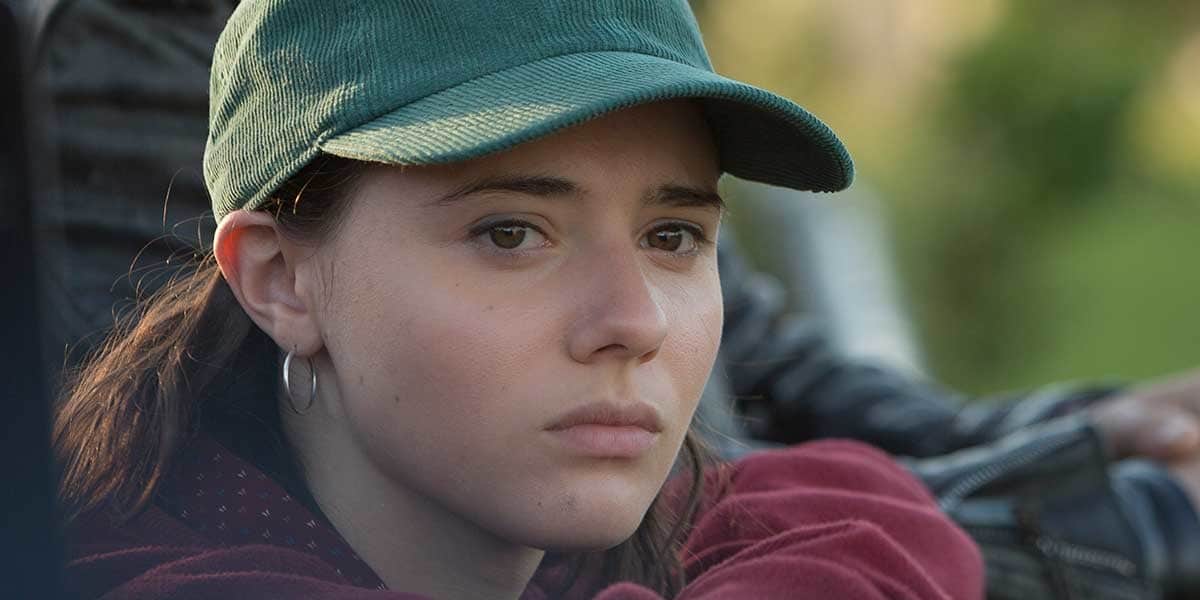The best part of any film festival is going into a movie with a blank slate—no prior knowledge, no expectations, and then proceed to be absolutely blown away. This was my experience with The Fireflies are Gone, the latest film from French-Canadian director and screenwriter Sébastien Pilote.
The Fireflies are Gone begins with our teenage protagonist Léonie bailing on her own birthday dinner attended by her mother, her mother’s boyfriend, and her godparents. Léonie, who prefers the abbreviated Léo, is much more at home in the confines of a more humble diner surrounded by her own friends. It is at the diner where she meets the much older Steve, a former aspiring rock star, who soon becomes Léo’s guitar teacher and mentor, as she attempts to navigate the rough waters of the last weeks of high school, her continuing fraught relationships with her parental figures, and life in a seemingly dead end town in Quebec.
Léo is played by Karelle Tremblay, in one of the best performances I have seen all year. Tremblay perfects the fine balance between charismatic confidence and emotional vulnerability that is indicative of young people on the verge of adulthood. On the other hand, Pierre-Luc Brillant’s portrayal of Steve is quiet and understated. Léo and Steve have an interesting dynamic. Léo desperately needs someone in her life to project her adolescent anxieties to, while Steve is desperate for any form of human interaction. Although there are hints that the two may want something more out of their relationship, Pilote thankfully avoids that far too predictable and frankly inappropriate trope.
One of the most interesting aspects of the film is its use of music. The film features both a very cinematic original score from Philippe Brault that channels Bernard Hermann’s score for Hitchcock’s Vertigo (another film about chasing something you’re not quite sure of) and it also features an array of contemporary pop and rock songs. The music aids the movie’s bright and effervescent tone, but it is also deeply important for anyone wishing to escape the ennui of suburban life. It’s perhaps why Léo decides to take guitar lessons from Steve in the first place. I was particularly moved by a montage set to the Arcade Fire track “Sprawl II (Mountains Beyond Mountains)”. I have fond memories of playing that song on repeat throughout a particularly rough suburban summer of my own.
Pilote shot the film in his hometown of Sauguenay, Quebec during the summer months. The setting has a very lived-in and familiar appearance. The juxtaposition of the natural vistas of the nearby bay and the abandoned and crumbling paper mills point to the precarious economic realities of smaller Quebec towns that Pilote alluded to in a Q and A following my screening of the film. It adds a fascinating subtext to an already fascinating film.
If you were a fan of coming of age films like Ghost World, Juno, and Lady Bird than you will love the equally funny and at times profound The Fireflies are Gone. Karelle Tremblay is also a name worth remembering.
While its TIFF screenings may have ended, I would not be surprised if The Fireflies are Gone ends up on the programme of TIFF’s Canada’s Top Ten Film Festival early next year.
Hear this review and more on this week’s episode of Movie Mixtape:









